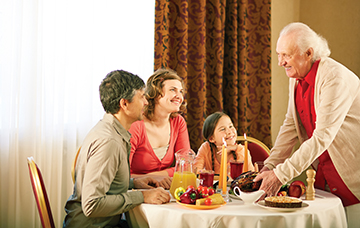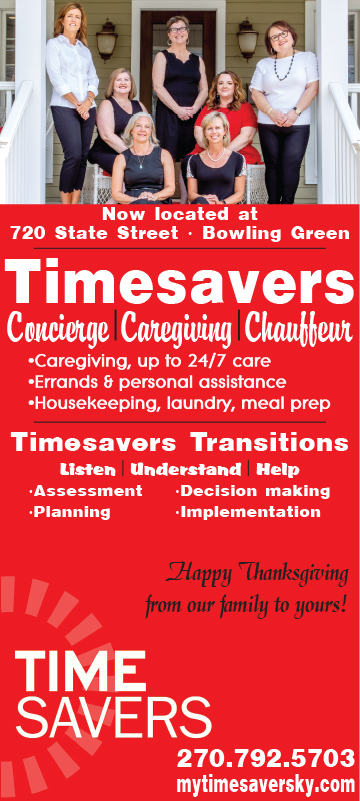
Traditions are important to us. They are ways to bind generations together and to show in a concrete way that a family or a group care about what came before and what will follow. The holidays are a great time to integrate traditions into family events and to allow the younger generations among us to initiate what might become a new tradition or two.
Traditions are also important to our loved ones living with dementia. Often the oldest memories are the memories that remain the most vivid in our loved ones’ minds. Perhaps the table being set with their grandmother’s dishes will transport them back to when they were children. Maybe watching the parades on TV is reminiscent of what they did with their children. Is this difficult to accomplish? Hardly. It requires only a little forethought on our part.
The holidays can be challenging for someone living with dementia. Sometimes we look at how challenging getting everything done is for us. What about the person who suddenly is overwhelmed with sensory stimulation, multiple voices that make no sense, people seemingly coming out of nowhere, an unfamiliar environment? That person needs top consideration as we plan. What are the things that will make that person most relaxed, most at home, most comfortable in their surroundings?
The sounds surrounding someone at the holidays are very important. Music that comforts and reminds them of fond emotional connections, even if those connections cannot be specifically identified, is a great tool to use any time. Making sure everyone knows to approach the person living with dementia from the front and to speak only one at a time can mean the difference between a good day and an event marred by extreme agitation and stress.
Depending upon where someone is in the progression of dementia, the food offered to them can also matter more than you might think. As taste buds die, sweet and salty foods become more appealing. If those are the only two tastes they want on their plate, go along for the ride. We all eat for comfort and pleasure at some point. This is just a more concentrated situation where that person actually has trouble tolerating other tastes. Allow them the comfort and pleasure.
Small children sometimes are great with people living with dementia, and sometimes they have difficulty understanding what is going on. Try to gauge the children’s adaptability level ahead of time and steer them to another room or another activity if you believe they will have a problem knowing when to approach and when to engage. This is no reflection on the child. It is merely an acknowledgement on your part that the person living with dementia is in their present reality not of their own choosing. You and I have choices; they do not.
Traditions are formed around what matters most to you and your family. As you examine what that might include this year, think about the respect and dignity to which all of our loved ones are entitled, and how we can emphasize the value we place on those things to our next generations. Does this require more from us? It does. And our families are worth the effort.
So perhaps this can be the newest tradition you incorporate into your family or neighborhood gatherings – what setting and environment can we create each year to accommodate our loved ones’ reality at that moment in time? What ideas can we bring to fruition? Looking at it simply, don’t we want for our loved ones what we would want someone to do for us in the same circumstances? Traditions have to start somewhere. Let this one begin with you.
-by Elizabeth Downing
About the Author: Elizabeth Downing is Director of Outreach for Timesavers Concierge, Caregiving & Chauffeur. A 1982 graduate of WKU, Elizabeth found her passion in advocating and providing care for older adults and those with special needs. Timesavers seeks to raise awareness of issues relating to aging and caring for aging loved ones and works to provide the highest quality care available. Elizabeth has completed a Certificate in Care Management from Boston University, is a Teepa Snow PAC Certified Independent Consultant, and facilitates a family caregiver support group each month.

